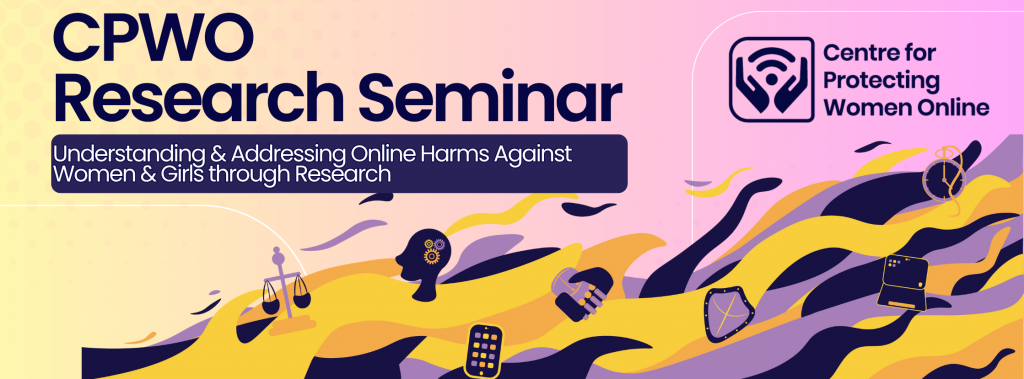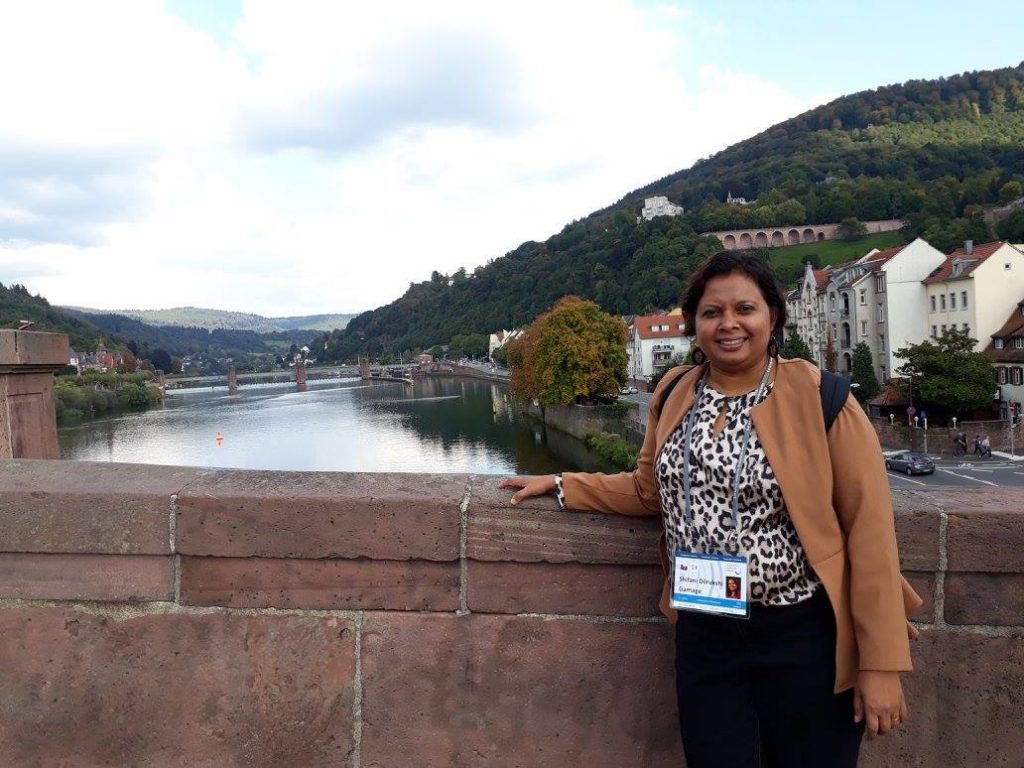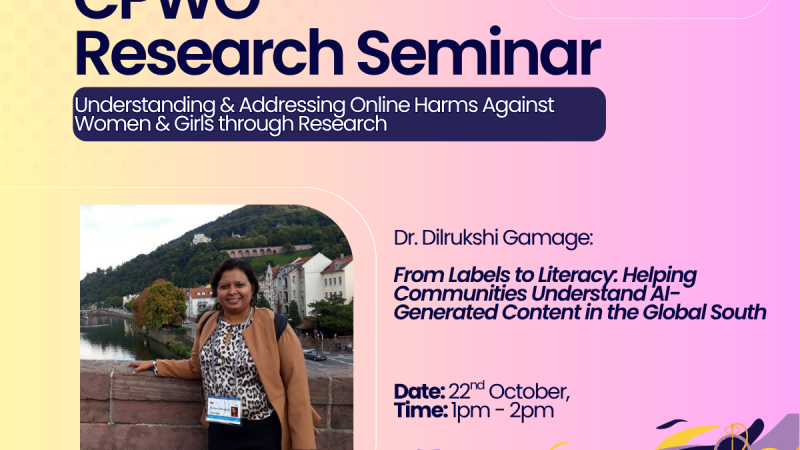CPWO Research Seminars

Understanding and Addressing Online Harms Against Women and Girls through Research
Online spaces play a huge role in our everyday lives, offering connection, creativity, and community. Yet for many women and girls, these spaces can also bring real risks and harm. These Research Seminars open up a shared conversation about how research can help us understand these experiences and find practical ways to make digital spaces safer and more inclusive. Bringing together researchers, students, practitioners, and members of the wider community, the event is an opportunity to learn from one another, share insights, and explore how we can work collectively to create lasting change.
We are delighted to welcome Dr. Dilrukshi Gamage to lead our first Research Seminar. Further details about the talk, the speaker’s biography, and a link to book a place are provided below.
From Labels to Literacy: Helping Communities Understand AI-Generated Content in the Global South
This talk will share insights from my recent collaboration with the Centre for Protecting Women Online at the Open University UK, along with a series of follow-up studies that extend this work. At CHI 2025, I presented our study on Labeling Synthetic Content, which investigated how users interpret, trust, and respond to labels applied to AI-generated media. Drawing on large-scale user experiments, we examined how visual and linguistic design elements—such as iconography, tone, and placement—shape user perception and engagement. Our findings showed that while labeling can raise awareness of AI-generated content, it does not necessarily promote critical evaluation on its own. Instead, effective mitigation requires pairing labels with broader media literacy and contextual education.
Building on these insights, my current research focuses on developing AI literacy interventions tailored for the Global South. Through participatory workshops in Sri Lanka, India, and Bangladesh, we have gathered perspectives from journalists, lawyers, educators, and digital rights advocates to explore how deepfakes intersect with misinformation, gendered harassment, and information inequality. This work led to the creation of Deepfake.help—a web-based, gamified literacy tool that uses culturally familiar narratives to teach users how to identify and reason about synthetic media. In parallel, we are developing a browser extension powered by an LLM agent that interacts with users in real time to provide contextual literacy about AI-generated content.
In this talk, I will reflect on how design, education, and cultural context can work together to build trust and resilience in digital spaces—moving beyond detection toward empowerment through literacy and human-centered AI transparency.
About the Speaker
Dr. Dilrukshi Gamage is a Visiting Research Fellow at the Centre for Protecting Women Online at the Open University UK and a Senior Lecturer at the University of Colombo School of Computing, Sri Lanka. Her interdisciplinary research lies at the intersection of Human-Computer Interaction (HCI), Trust & Safety, and Computational Social Science, focusing on how AI-generated content—such as deepfakes—impacts public trust, gendered safety, and digital literacy in the Global South. She was previously a Research Fellow at the Weizenbaum Institute for the Networked Society in Berlin and an Affiliate at the Berkman Klein Center for Internet & Society at Harvard University and a postdoctoral researcher at Institute of Science Tokyo (formally Tokyo Tech). She has led multi-country research and design interventions across South Asia and presented her work at leading venues such as CHI, ICWSM and Trust & Safety Conference. Her work can be found at www.dilrukshigamage.org.


